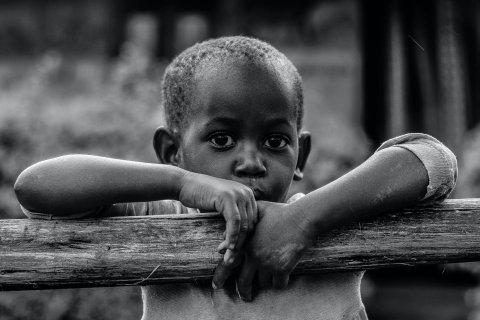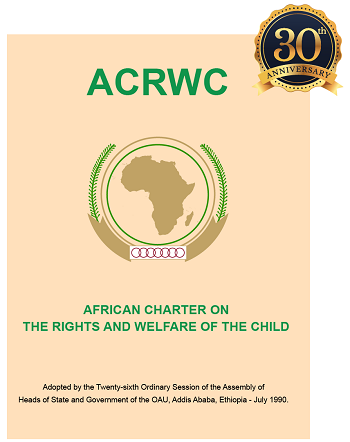News
On the 24th of March, the European Commission adopted the first comprehensive EU Strategy on the Rights of the Child, as well as a proposal for a Council Recommendation establishing a European Child Guarantee to promote equal opportunities for children at risk of poverty or social exclusion, which complements the Strategy.
The new strategy, proposed at both the European and global level and developed via an enquiry which collected the views of over 10,000 children, both inside and out of the European Union, is structured around six different areas which cover themes such as child poverty, children’s participation in democratic life, and child friendly-justice. In this last area, the Strategy places an emphasis on actions geared towards specialised judicial training for professionals, the implementation of the Council of Europe’s Guidelines on Child Friendly Justice, and the use of alternatives to judicial action, amongst others.
Moreover, the Strategy focuses on ending all types of violence against children as one of its principal objectives, including support regarding gender-based and domestic violence, and an increase in the prevention of harmful practices against women and…
The High Representative of the Union for Foreign Affairs and Security Policy, Josep Borrell, and the Special Representative of the Secretary-General of the United Nations on the issue of children and armed conflict, Virginia Gamba, released a joint statement on the International Day against the Use of Child Soldiers, reaffirming their commitment to prevent the recruitment of children and assure both their liberation and reintegration into society.
In this text, Borrell and Gamba lamented that, “despite global commitments and efforts” to prevent recruitment, “children around the world continue to suffer from the consequences of conflicts and are still being used as expendable fuel of war”. They also highlighted that “education is crucial” to avoid this situation.
In this regard, they noted how “insecurity prevents thousands of children from accessing quality education and health care while schools and hospitals continue to be targeted”. Lastly, they have condemned the fact that, despite being victims, “children remain unlawfully in detention for their alleged or actual association with armed forces and groups”.
Poverty and the lack of opportunities, whose impact has been…
On the 21st of January, the Council of Europe published a new handbook on children’s participation, titled ‘Listen-Act-Change’, made for professionals working with youth throughout all of Europe. This document acts as a guide for implementing both the Council of Europe Recommendation on the participation of children and young people under the age of 18, and Article 12 of the UN Convention on the Rights of the Child, which aims to guarantee children’s right to express their opinion freely regarding all issues that affect them, properly bearing their opinions in mind according to their age and maturity.
The new handbook is a tool which combines different modules to explain, in a detailed manner, the concept of child participation in theory and practice, and also guides professionals towards its implementation in different intervention settings, individually, collectively and in specific institutional contexts.
This publication was completed thanks to the voluntary contributions provided by a number of Council of Europe member states (Albania, Armenia, Bosnia and Herzegovina, Denmark, Estonia, Georgia, Luxembourg, Monaco, and Ukraine).
Read more and access the manual (currently…
The ‘Youth Crime Prevention through Sport’ project, part of UNODC’s Doha Declaration Global Programme, has developed ‘Line Up Live Up’, an initiative on a global scale aimed at preventing youth crime which is based on the power of sport as a tool for peace.
Through this project, coaches, teachers, and other staff in contact with youth groups in a sports setting can tackle fundamental life skills, such as resisting social pressure to get involved with crime or overcoming anxiety and communicating effectively with peers, amongst other things, utilising different exercises and interactive dynamics to achieve this.
On the occasion of the 30th anniversary of the adoption of the African Charter on the Rights and Welfare of the Child (ACRWC), the African Child Policy Forum (ACPF) has launched videos and publications to celebrate this.
The Charter was adopted by the Assembly of Heads of State and Government of the Organization of African Unity in July 1990, and entered into force in November, 1999. Three decades after its adoption, 49 countries have already ratified this instrument. The ACPF has released a report evaluating the progress regarding children’s rights in Africa in these three decades, titled ‘Africa’s 30-year Journey with the African Children’s Charter: Taking Stock, Rekindling Commitment’, which aims to rekindle regional and national commitment to child rights and wellbeing in the continent. Moreover, the ACPF has launched a webpage dedicated to the Charter where they have released a series of videos complementing this publication, which feature the participation of a number of specialists in the field.
The Charter covers a wide range of rights and obligations set out in an innovative and progressive way, reflecting in an appropriate manner the African reality for better progress…
The IJJO is beginning a new phase in its work, distinguished mainly by its encouragement of participation, agility, flexibility and optimisation of resources, but with the same objective of working to promote the rights of children and young people who come into contact with justice systems, and contributing to the implementation of the international standards which guarantee these rights.
This has led us to renovate our website with a new design and a new version of the content management system with improved functionalities in navigation and security.
The Committee on the Rights of the Child is currently drafting a general comment on children’s rights in relation to the digital environment. In March 2019, the Committee invited all interested parties to comment on the concept note of the general comment. Submissions on the concept note can be found here.
The ‘Child-Friendly JT’ project has produced six leaflets – three for children, and a further three aimed at their parents or legal guardians – with information on the rights of children who are suspected or accused in criminal proceedings in the EU. The project is co-funded by the Justice Programme of the European Union. Due to the interest in the leaflets from a diverse range of public institutions in the field of juvenile justice, 3000 additional copies have been printed after the finalisation of the project, intented for distribution to these organisations.
Pagination
- First page
- Previous page
- 1
- 2
- 3
- 4
- 5
- 6







